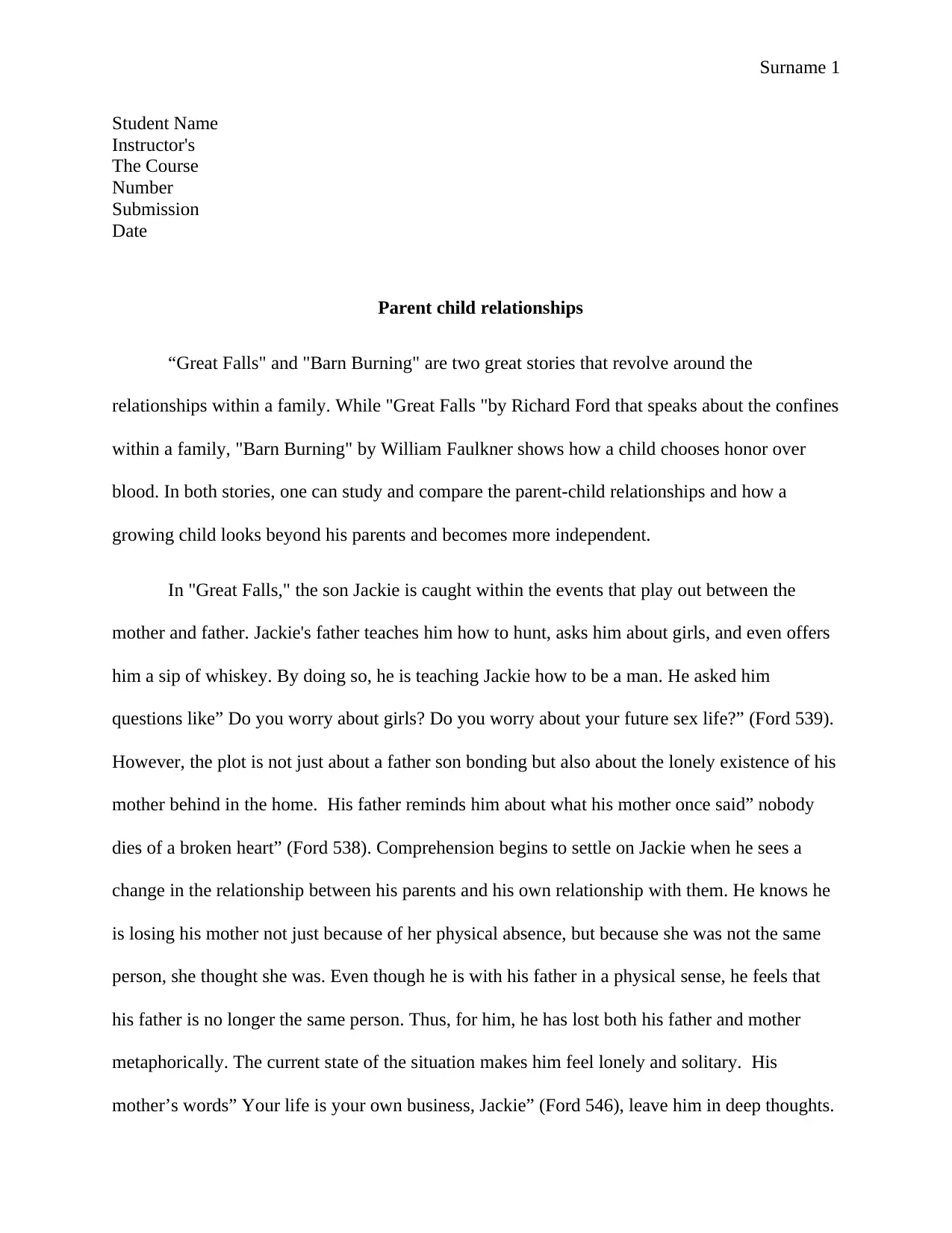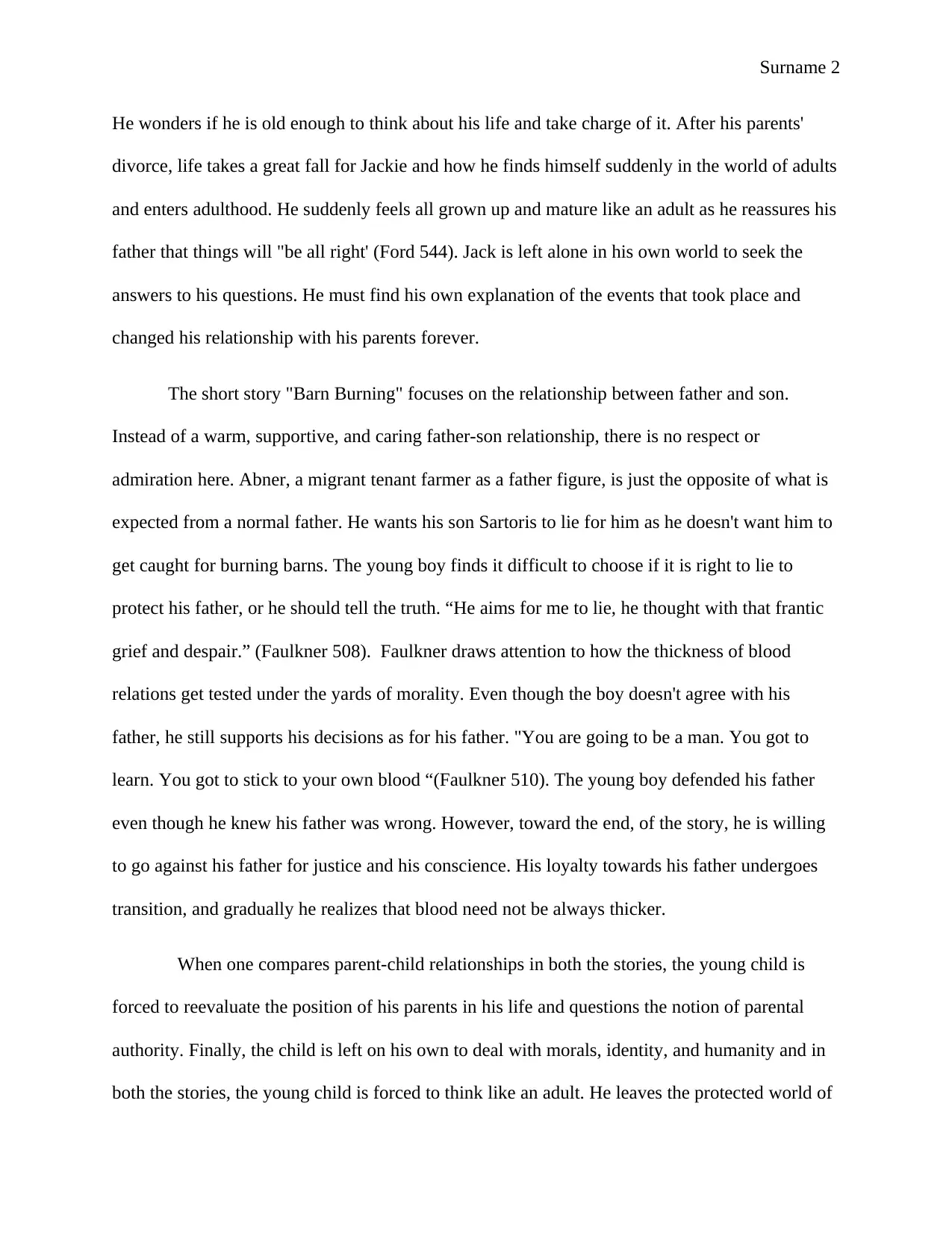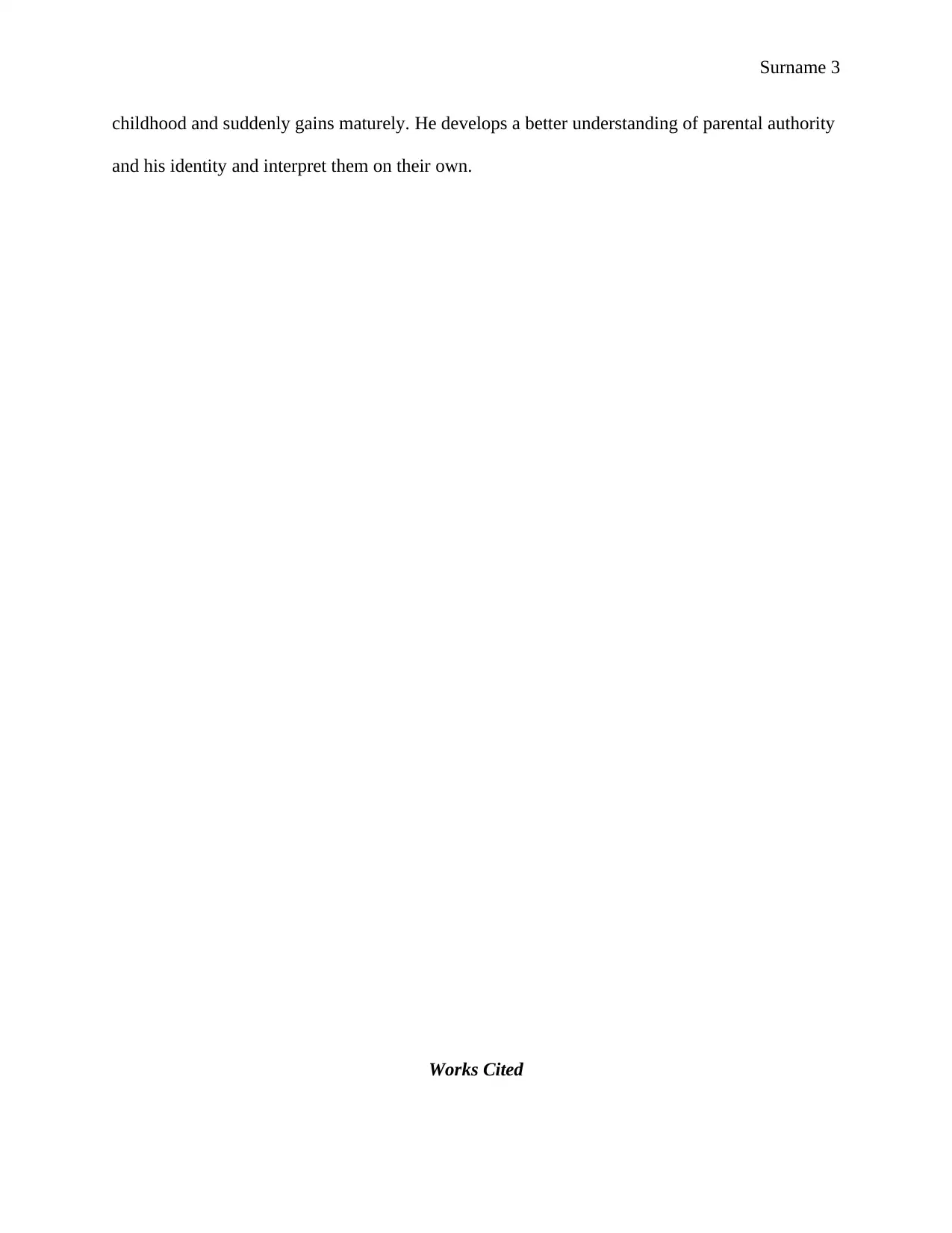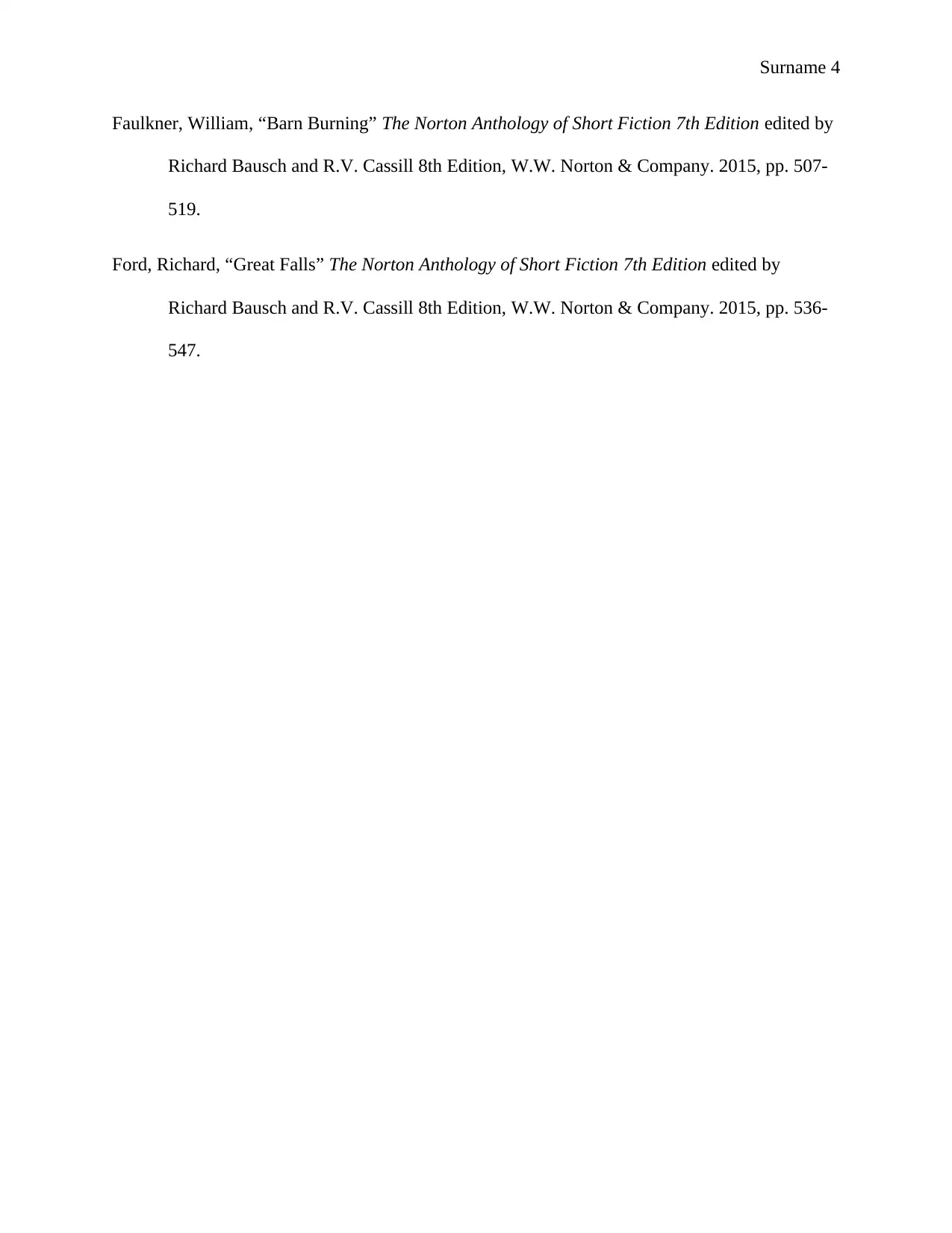A Comparative Study of Parent-Child Relationships in Short Fiction
VerifiedAdded on 2022/10/09
|4
|903
|275
Essay
AI Summary
This essay provides a comparative analysis of parent-child relationships as portrayed in Richard Ford's "Great Falls" and William Faulkner's "Barn Burning." The essay examines how the protagonists in each story navigate complex familial dynamics and the impact of parental figures on their development. In "Great Falls," the essay explores the changing relationship between a son and his parents amidst a divorce, focusing on themes of loneliness, independence, and the transition into adulthood. Conversely, "Barn Burning" is examined to show how a son grapples with his father's immoral actions, ultimately choosing his conscience over familial loyalty. Through close textual analysis, the essay highlights the differing approaches to parenting, the children's evolving understanding of parental authority, and their journey toward forming their own identities and moral compasses. The essay concludes by emphasizing the shared theme of the young protagonists' forced maturation and their ability to independently interpret the events that shape their lives.
1 out of 4











![[object Object]](/_next/static/media/star-bottom.7253800d.svg)